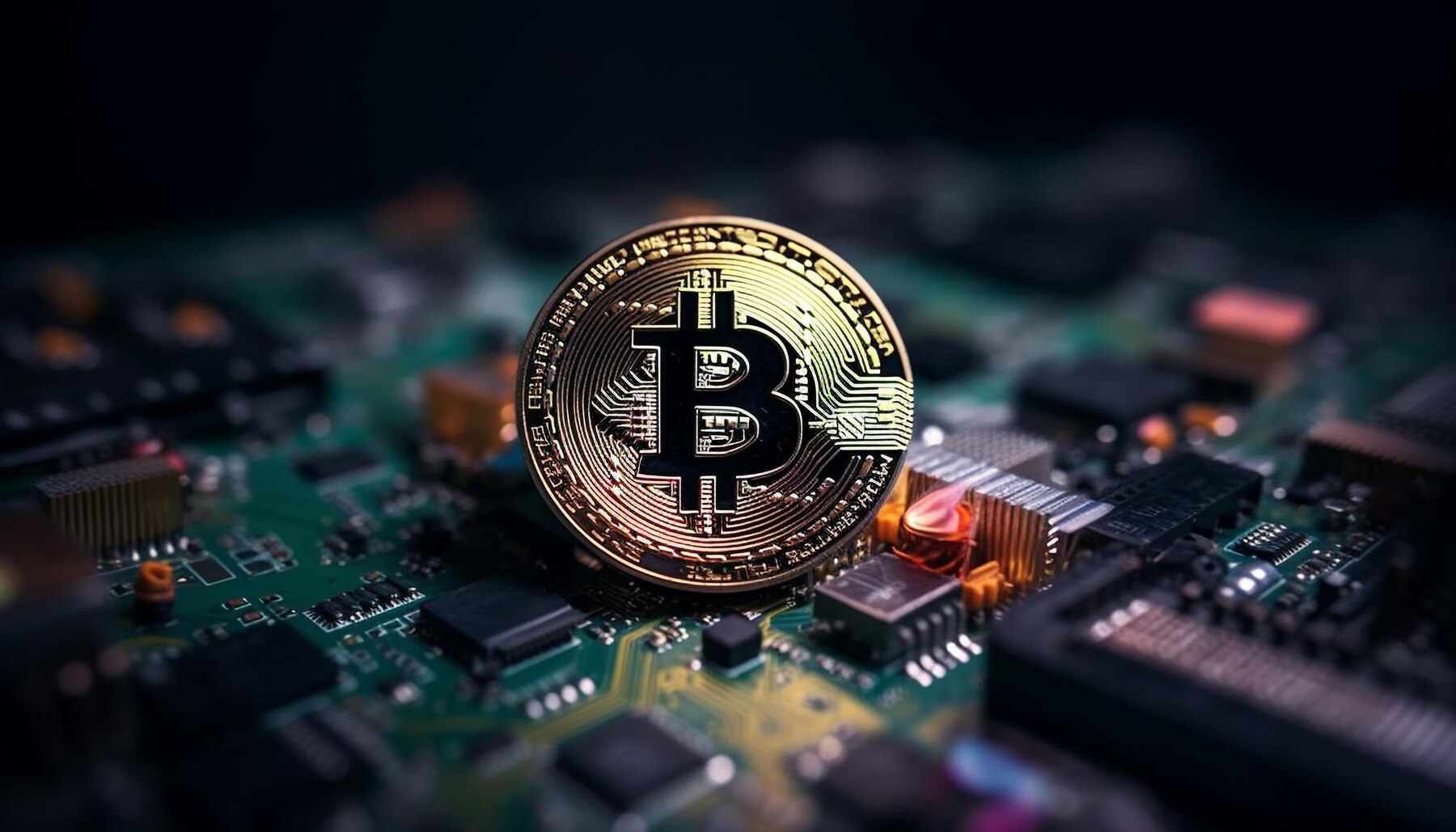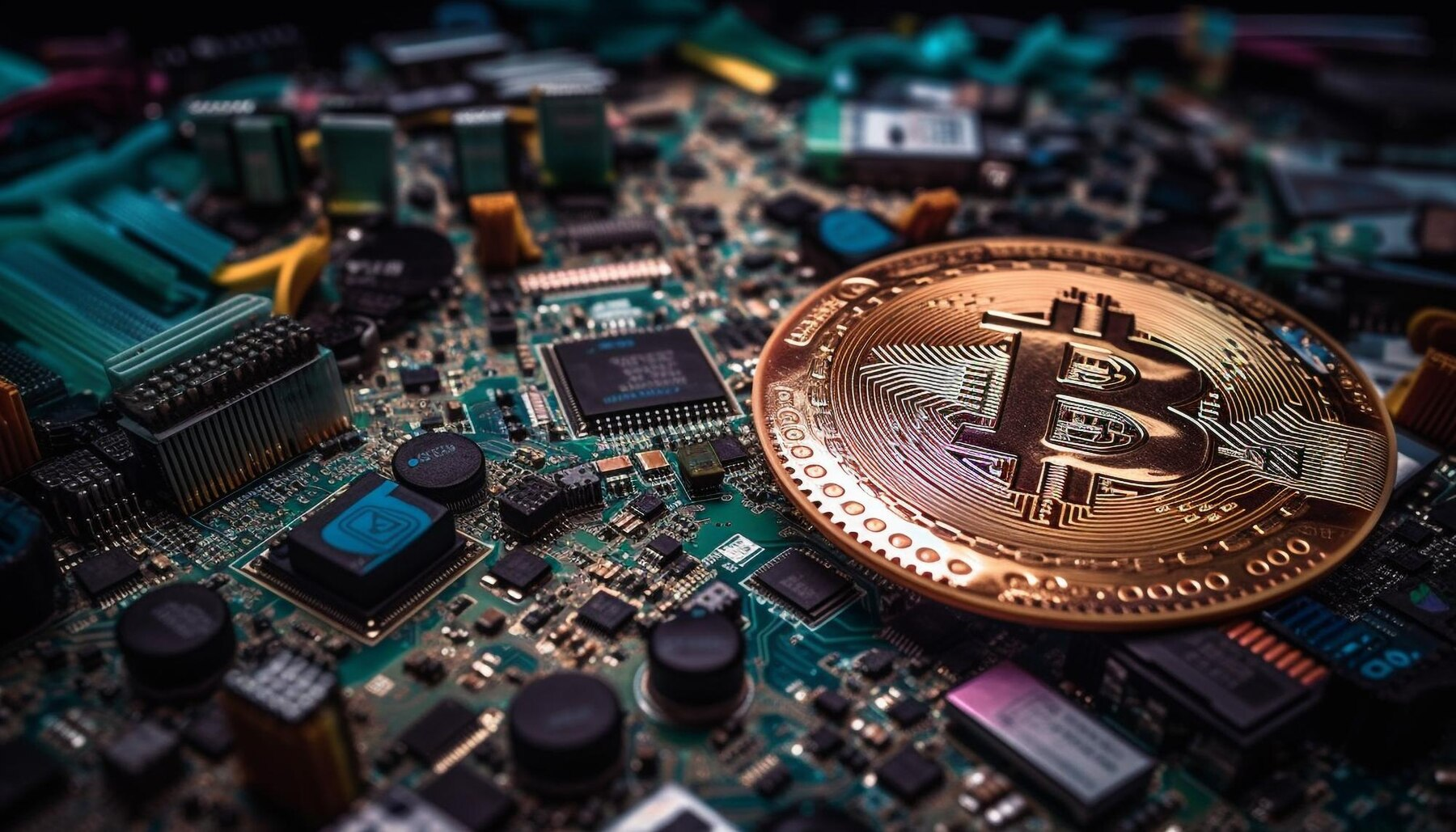
In the ever-evolving world of digital finance, cryptocurrencies have emerged as a revolutionary paradigm, promising a future of decentralized and democratized monetary systems. Yet, amidst their meteoric rise, a common narrative persists – that cryptocurrencies are inherently insecure and alarmingly susceptible to hacking. This perception has been perpetuated by high-profile security breaches and media narratives painting a picture of a volatile, unpredictable landscape fraught with risk.
This article aims to challenge this prevailing myth. By delving into the underlying mechanisms of cryptocurrencies and blockchain technology, we will shed light on the robust security measures in place that make cryptocurrencies not only secure but also resilient to many conventional hacking attempts. So, let’s embark on this journey of demystification and explore the reality behind the perceived insecurity of cryptocurrencies. Is crypto secure?
Cryptocurrencies are digital or virtual currencies that use cryptography for security. Unlike traditional currencies issued by central banks, they are decentralized and operate on a technology called blockchain. But what does this all mean?
At its core, cryptocurrency is essentially a medium of exchange, much like your typical dollars, euros, or yen. However, it exists solely in the digital realm. Each unit of cryptocurrency is nothing more than a piece of code. Transactions made with these digital currencies are secured by strong cryptographic algorithms, which is where the term ‘cryptocurrency’ originates.
Now, let’s delve into blockchain technology. Imagine a ledger that records every transaction ever made with a particular cryptocurrency. Now, imagine thousands of copies of this ledger distributed across a network of computers (also known as nodes) around the world. This is essentially what a blockchain is—a decentralized ledger.
When a transaction occurs, it is grouped together in a block with other transactions that have happened in the same timeframe. These blocks are then added to the chain in a linear, chronological order. The decentralization of this ledger means there is no central authority, making the system democratically controlled by its users.
One of the key elements of blockchain technology is encryption. Each transaction is encrypted and linked to the previous transaction. This forms a chain of blocks, hence the name ‘blockchain’. This encryption, combined with the decentralized nature of the blockchain, makes it incredibly difficult for any one party to alter past transactions.
Consensus mechanisms are another crucial aspect of blockchain technology. They ensure all copies of the distributed ledger share the same state. Once a block is added to the chain, the change is accepted by all nodes in the network, and the integrity of the blockchain is maintained.
Cryptography plays a vital role in securing both transactions and wallets in the world of cryptocurrencies. When a transaction is made, it’s signed with a cryptographic signature, which is essentially a mathematical proof that the transaction has come from the owner of the wallet. The transaction is then broadcasted to the network for validation and inclusion in the blockchain. This process ensures that only the owner of the wallet can transfer cryptocurrencies, providing a high level of security.

The digital currency landscape has experienced its share of security incidents, with reports indicating over $3.8 billion stolen in crypto-related hacks in 2022, and around $2 billion in 2023. This year, the trend continues, with numerous hacking incidents and security breaches making headlines.
However, it’s essential to differentiate between vulnerabilities in cryptocurrency protocols themselves and those in third-party platforms like cryptocurrency exchanges and crypto wallets. The vast majority of reported hacks and breaches are not due to a flaw in the underlying blockchain technology, but rather in the platforms that manage digital assets.
Cryptocurrency exchanges and hot wallets, which are connected to the internet for trading and transactions, have been a major target for hackers. For instance, Crypto.com admitted a $35 million hack in 2022. These platforms, while necessary for most users to buy, sell, and store cryptocurrency, can present security risks.
Crypto wallets hold the private keys that allow access to a particular crypto account. If a hacker manages to obtain these keys, they can transfer the virtual currency to their own account. Therefore, securing these keys is crucial for protecting your cryptocurrency investments.
Two factor authentication is often used as an additional security layer. However, if a hacker gains access to a user’s email or phone number, they might bypass this protection. Moreover, phishing scams also pose a significant risk, where hackers trick users into revealing their private keys or login details.
To mitigate these risks, many users turn to hardware wallets and cold storage options. A hardware wallet is a physical device that securely stores a user’s private keys offline. Paper wallets are another form of cold storage where the private keys are printed on a piece of paper.
These methods keep your crypto assets safe from online threats and are especially recommended for large amounts of cryptocurrency. However, they also come with their own set of challenges, such as the risk of losing the physical device or paper, which would result in losing access to the crypto assets.
On the other hand, the security of cryptocurrency transactions themselves is typically very robust, thanks to the cryptographic measures in place. Blockchain technology ensures that once a transaction is added to the blockchain, it cannot be altered, providing strong security for the integrity of transactions.
However, there have been instances where a security flaw in the design of a specific cryptocurrency protocol has been exploited. These cases are relatively rare and usually addressed quickly by the crypto community.

The security of cryptocurrencies is a multifaceted concept, involving both the inherent security features of blockchain technology and the security measures implemented by third-party platforms such as crypto wallets and cryptocurrency exchanges.
Blockchain technology offers several key security features that make it particularly well-suited for secure transactions of digital currency.
One of these features is cryptographic hashing. Each block in the blockchain contains a cryptographic hash of the previous block, a timestamp, and transaction data. This design ensures that once a block is added to the blockchain, it cannot be altered without changing all subsequent blocks, which would require the consensus of the majority of the network. This makes the blockchain resistant to fraud and hacking.
Another important security feature is public-private key encryption. In the context of cryptocurrencies, the public key is used to create a unique address to which others can send cryptocurrency, while the private key is used to sign transactions and access the crypto assets. Keeping the private key secure is critical, as anyone with access to it can control the associated assets.
Consensus protocols are also a crucial part of blockchain security. They ensure that all nodes in the network agree on the state of the distributed ledger. The most common consensus protocol is Proof of Work (PoW), which requires miners to solve complex mathematical problems to add a new block to the blockchain. This process makes tampering with the blockchain computationally unfeasible.
Reputable cryptocurrency exchanges and wallet providers also implement a range of security measures to protect users’ assets and personal information.
Two-factor authentication (2FA) is a common security measure, requiring users to provide two types of identification before accessing their accounts. This could be something they know (like a password), something they have (like a hardware token or mobile phone), or something they are (like a fingerprint)4.
Cold storage is another important security measure. This involves storing cryptocurrencies offline to protect them from online threats. Many exchanges store the majority of users’ funds in cold storage while keeping a small portion in hot wallets for day-to-day transactions.
Hardware wallets, which store users’ private keys on a physical device, are considered one of the most secure ways to store cryptocurrency. These devices can generate the keys offline and are immune to computer viruses.

Cryptocurrency security is often surrounded by myths and misconceptions. Let’s debunk these myths and delve into the reality of crypto security.
Hacking incidents in the crypto market usually stem from vulnerabilities in third-party platforms like cryptocurrency exchanges and wallets, rather than the cryptocurrencies themselves. These incidents are typically addressed promptly, with the affected platforms reinforcing their security protocols and, when possible, reimbursing users for their losses.
For instance, when Binance, one of the world’s largest crypto exchanges, was hacked in 2019, it used its Secure Asset Fund for Users (SAFU) to cover the losses of affected users. This immediate response not only mitigated the impact of the breach but also demonstrated the exchange’s commitment to user security.
When compared to traditional banking and online financial transactions, the security of cryptocurrencies can be just as robust, if not superior. While banks have long-established security protocols, they also present attractive targets for hackers, and breaches do occur.
In contrast, cryptocurrencies benefit from the decentralization and cryptographic security features inherent in blockchain technology. Each cryptocurrency transaction is secured using advanced cryptographic techniques, providing a level of security that is currently unparalleled in traditional banking. However, the responsibility for security often lies more heavily on the individual when dealing with cryptocurrencies, meaning the safety of your crypto investments largely depends on how you manage them.
Despite some high-profile hacking incidents, many experts believe cryptocurrencies can be a safe investment if handled correctly. According to Investopedia, several organizations can help you if you’re a victim of a cryptocurrency scam or suspect one.
Moreover, as crypto security technology continues to advance, experts are optimistic about the future of crypto security. With the advent of more secure storage options, such as hardware wallets and cold storage, securing your cryptocurrency investments is becoming increasingly straightforward.
As the world of digital assets continues to grow, so does the need for robust security measures. While blockchain technology provides inherent security for cryptocurrency transactions, the role of users in maintaining this security cannot be understated.
When it comes to secure cryptocurrency, individuals must adopt a proactive approach. One crucial practice is the use of secure storage options. Cryptocurrency can be stored in either hot wallets, which are connected to the internet and ideal for everyday transactions, or cold storage options, which are offline and therefore less vulnerable to hacks.
Hardware wallets, a form of cold storage, provide an added layer of security by storing the user’s private keys offline. This significantly reduces the risk of theft from online vulnerabilities. However, these wallets are not entirely immune to risks; physical theft is a potential vulnerability if someone gains physical access to the wallet.
Users should also be vigilant to avoid falling victim to crypto scams, which often exploit people’s trust and vulnerability. These scams may trick users into revealing sensitive information or parting with their hard-earned digital assets.
Investing in cryptocurrency requires a high degree of personal responsibility. This involves not only securing one’s crypto assets but also staying informed about potential security risks and how to mitigate them. Regular software updates, for example, often fix bugs and vulnerabilities, improving the overall performance of crypto wallets.
As we look towards the future, innovations and advancements in blockchain technology are set to enhance the security of cryptocurrency transactions. This includes quantum-resistant algorithms and improved consensus mechanisms that make the crypto network more resilient against attacks.
Quantum-resistant algorithms are designed to withstand the potential threats posed by quantum computing. As quantum computers become more powerful, they could potentially break the cryptographic codes that secure cryptocurrencies. Quantum-resistant algorithms aim to prevent this, securing cryptocurrencies against future threats.
Improved consensus mechanisms, on the other hand, are aimed at making the blockchain more efficient and secure. Consensus mechanisms are the methods by which transactions are validated on the blockchain. By improving these mechanisms, we can enhance the security and speed of cryptocurrency transactions.
Regulatory measures are also evolving to improve security and user protection in the crypto market. Governments and regulatory bodies around the world are introducing rules to combat cryptocurrency fraud and scams, protect investors, and ensure the integrity of the market. These measures include requiring cryptocurrency exchanges to implement robust security measures, perform thorough customer due diligence, and report suspicious transactions.
Despite these advancements, it’s important to remember that the security of your cryptocurrency investments largely depends on how you manage them. Best practices for individuals to secure their cryptocurrency holdings include using hardware wallets for secure storage, avoiding phishing scams, and regularly updating software to patch any security flaws.
In this article, we have debunked the myth that cryptocurrencies are inherently insecure. While it’s true that investing in cryptocurrency comes with certain security risks, it’s also clear that these risks can be effectively managed through careful practices and the use of secure storage options like hardware wallets and cold storage.
We’ve seen how hacking incidents in the crypto market typically stem from vulnerabilities in third-party platforms rather than the cryptocurrencies themselves. We’ve also compared the security of cryptocurrencies to traditional banking and online financial transactions, highlighting the advanced cryptographic techniques that make blockchain technology so secure.
Moreover, we’ve emphasized the role of individuals in maintaining the security of their digital assets. From avoiding crypto scams to storing private keys securely, personal responsibility is a crucial element of crypto security.
Looking to the future, advancements in blockchain technology, such as quantum-resistant algorithms and improved consensus mechanisms, promise to enhance the security of cryptocurrency transactions. The evolving landscape of regulatory measures will also play a key role in enhancing user protection and market integrity.
However, it’s essential for readers to conduct their own research and adopt best practices for security when dealing with cryptocurrency investments. While the future of cryptocurrency security looks promising, the safety of your digital assets ultimately depends on you.
Would you like to start investing in the most impactful crypto gaming, NFT and metaverse projects with GamesPad? Learn how in this comprehensive tutorial!
Disclaimer. This material should not be construed as a basis for making investment decisions or as a recommendation to participate in investment transactions. Trading digital assets may involve significant risks and can result in the loss of invested capital. Therefore, you must ensure that you fully understand the risk involved, consider your level of experience, investment objectives, and seek independent financial advice if necessary.